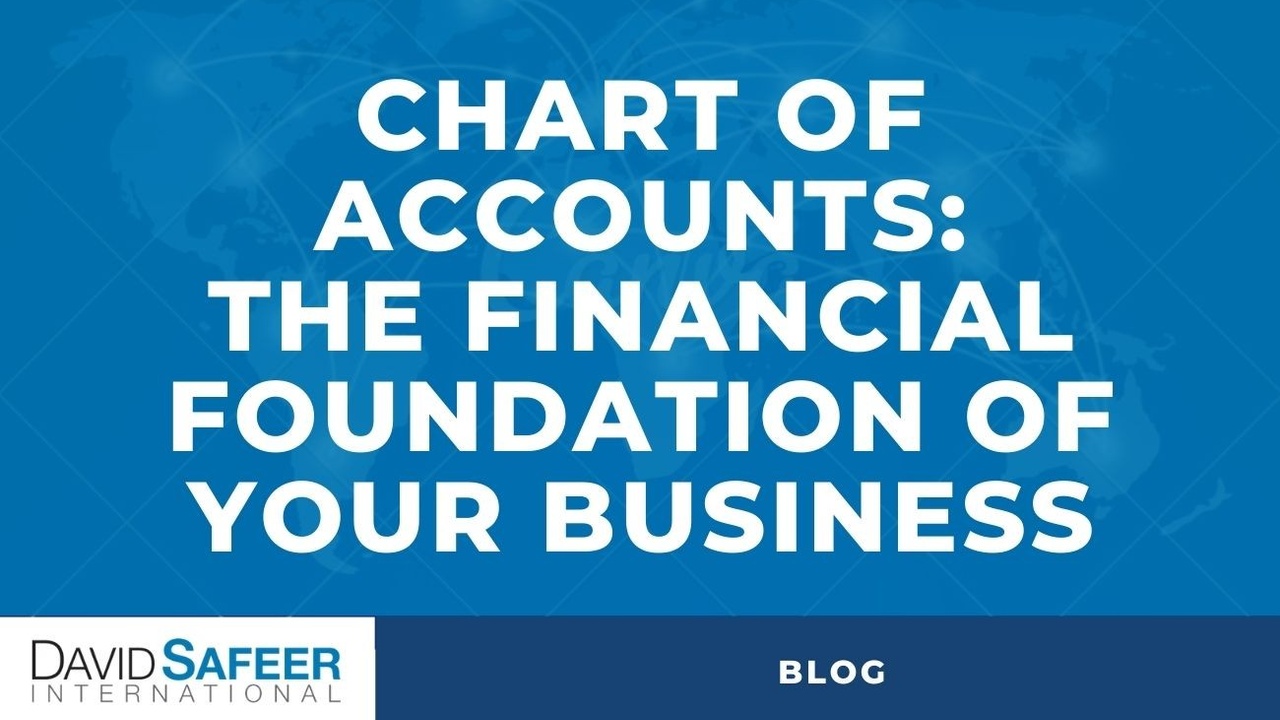Chart of Accounts: The Financial Foundation of Your Business

Most business owners' eyes glaze over when I talk to them about the "chart of accounts."
Then we talk about what they are trying to understand about their business's finances. They generally want the same thing:
- How much money am I making?
- How do I know if I'll have enough money to pay the bills?
- Which products and services make the most money?
- Do I have extra expenses that I can cut?
- Do I have enough capital to grow?
When I explain that the chart of accounts is the foundation for understanding each of those questions, they get more interested.
I explain that the chart of accounts is a list of categories.
Then I tell the business owner:
• Where sales come from
• Where expenses go
• What the assets are (what's owned)
• What the liabilities are (what's owed to others)
• What the difference is between what's owned and what's owed. This is called the “equity” in a company.
They quickly understand that with the right chart of accounts they can...
Costs of Losing the Best People

Why don't employers see the huge CASH cost of losing their best people, and give them what they need to stay?
Employers spend a lot of extra money when they lose their best people. Here are some of the incremental hard costs:
- Training costs for a new person
- Recruiting costs
Even bigger are the "hidden" costs:
- Employer's time to recruit
- Lost productivity
- Emotional cost to the team
What would it take to keep the best people?
1. Ask them. They'll tell you.
2. Some money. Less than replacing them.
3. Recognition. Get creative and see #2.
4. Bonus idea: Reward them with something that benefits their significant other and/or family.
Back to the cold hard cash facts. Studies show it costs you 33% of someone's annual salary to replace them. You can keep people for a lot less.
Am I right? Wrong? What's your experience?
Let me know in the comments below.
#wtcfg #humanresources #finance
The Clear PATH To Cash: Money is for Sale Featuring David Safeer
"The number one way people raise capital for their startup companies is called credit card debt... but there are other options!"
Payne Points of Interest #94 Tips on advertising to maximize your cash flow
"From a cash flow perspective, I would suggest that you have underutilized resources with any interested party in your business's success."
Keep Digging. The Problem With Your Cash Flow Isn't What You Think It Is

When you are looking to fix your cash management issues, don’t just look at the symptom. If you don’t dig past the symptoms you are seeing at the surface of a problem, you probably don’t know what your real problem is.
Most of the time when I am asked to come in and resolve issues, I am asked to fix the symptoms of a business’s troubles.
- “I need good job descriptions, so the business runs smoother.”
- “Help me get a loan so I have more capital.”
- “I have a lot of profits. Help me find more cash.”
- “Would you be my part-time CFO, so I can get my finances organized and we can grow again?”
People don’t realize that the symptoms they see and keep them awake at night, are not the real issues that need to be fixed. They try to get rid of the immediate pain and often try short-cuts that do more harm than good.
When I was Leaking Water instead of Cash
Let me tell you a quick story that will give you a better idea...

